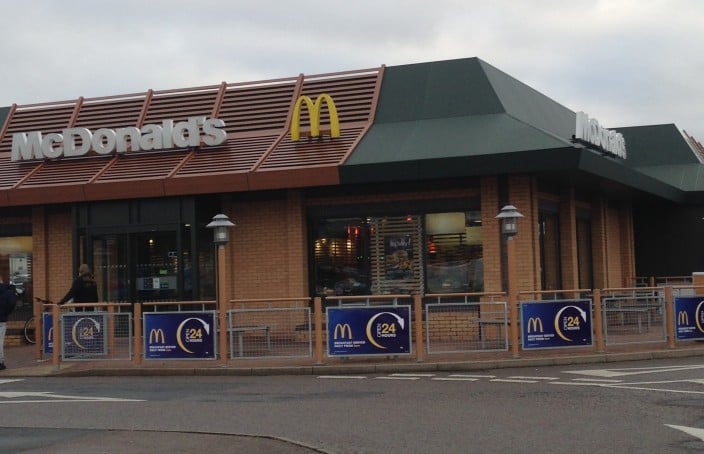On the verge of collapse, Matt Brown tried to order a burger from McDonald’s to address his blood sugar levels. It was Christmas Eve, and Mr. Brown, a 38-year-old teacher from Coventry, had run out of the Lucozade he carries for emergencies. He approached the McDonald’s drive-thru on foot fearing he was about to slip into a coma.
But the McDonald’s staff refused, citing their policy of not serving people on foot in their drive-thrus. Growing increasingly desperate, Mr. Brown asked the duty manager to call an ambulance, but was told: “It’s not my problem.”
Mr. Brown said: “I usually carry Lucozade for emergencies but had run out. I decided to head for the McDonalds on my route to get my sugar level back safe. I was slumped outside for over an hour. I just needed some help and goodwill.”
Staff at the McDonald’s claim that Mr. Brown asked them to call a taxi, not an ambulance. Whichever of the conflicting accounts is true, the problem was likely one of a lack of diabetes awareness among individuals – as is so often the case. Blaming McDonald’s isn’t necessarily appropriate; a well-informed member of staff would no doubt have been more sympathetic. The symptoms of hypoglycemia are often confused with signs of drunkenness: sleepiness, dizziness, and disorientation. Considering that the event happened in the early hours of the morning, it’s possible that the staff at McDonald’s simply misinterpreted Mr. Brown’s condition.
None of which entirely excuses the refusal of the McDonald’s staff to help Mr. Brown, but it does explain how these unfortunate situations can arise. There are a few possible solutions: diabetes wristbands, for example, can help people who don’t know about diabetes identify the problem, but the only real, permanent solution is for the general population to have a better understanding of a condition that affects millions of people.


